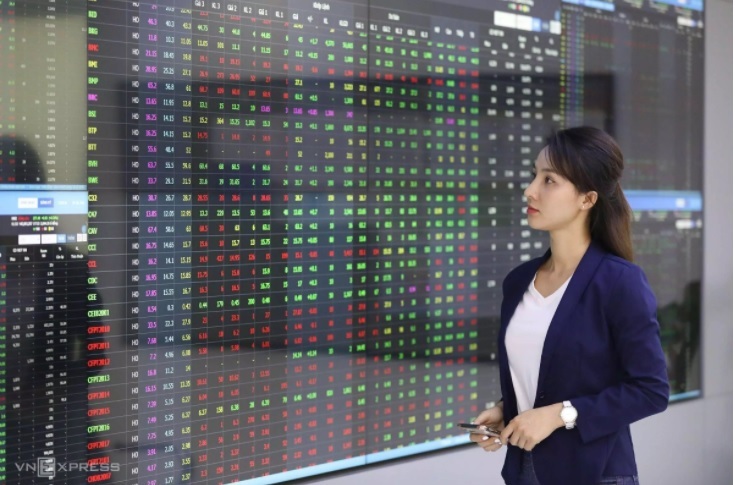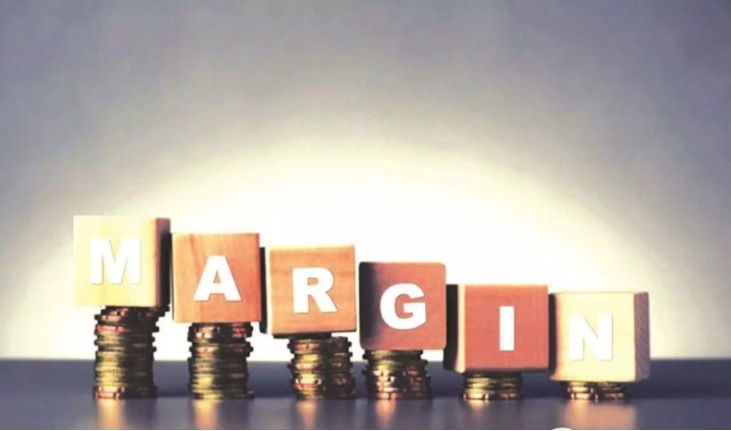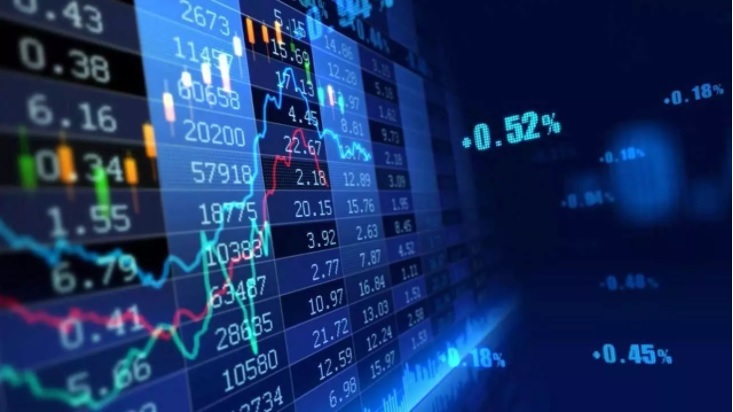 |
“The price of stocks is skyrocketing. We see big profits from investing in stocks but we cannot borrow more money," Mr. Nguyen Tan Duong said after the brokerage of a securities company informed him that he could not borrow more money under the law (maximum loan is twice over equity).
‘Running out of money for lending clients’ is the common situation of many securities companies. Believing that the Vietnamese stock market has very good prospects, Duong wants to increase financial leverage, and pour money into securities and banking stocks to increase profits. And Duong's solution was to open more accounts in two different securities companies in the first week of June to promote investment activities.
Current regulations do not prohibit investors from opening multiple securities trading accounts, so this is a reasonable solution for Duong at this time. However, borrowing money from securities companies is not easy when most of them have run out of capital to serve their clients as the number of new investors (F0) has increased so quickly in recent times.
The number of newly-opened securities accounts opened in the last 18 months is equal to the total number of the previous 20 years. Most securities companies recorded an increase of 3 times in transaction volume, or by 13-18 times for some companies in the past three months.
New and passionate players
 |
According to statistics of the State Securities Commission (SSC), margin balance on the entire stock market reached a record high - VND112.1 trillion (about $4.8 billion) by the end of May 2021, an increase of VND31.2 trillion compared to the end of 2020 and an increase of VND10.7 trillion compared to the end of the first quarter of 2021.
This happened in the context that the number of new investors in the stock market skyrocketed in a short time. In the first five months of 2021, a total of nearly half a million new accounts were opened.
Although lending margin is still under control, the State Securities Commission has warned about the continuous increase and the need to strengthen inspection and supervision to ensure that margin lending activities are legal and safe for securities companies and sustainable safety for cash flow on the stock market.
In theory, when the stock market falls deeply, call margin will take place and can drag the stock price down. This happened in the past and many times stock market managers have warned about the risks. Many people have also expressed concern in the context of many negative signals appearing, affecting decisions of stock investors.
According to statistics, so far this year, foreign investors have sold stocks worth about VND 31 trillion ($1.3 billion). Many key stocks in the market were sold strongly, such as those of Hoa Phat, VPBank, Vinamilk or Novaland...
The strong selling of stocks when the price increased in 2020 and the first six months of 2021 has caused concerns. Sacombank registered to sell more than 81.5 million treasury shares when the stock price reached a historic peak. TPBank also sold over 40 million treasury shares (equivalent to 3.73% of charter capital) from April 28 to May 18, 2021, earning more than VND1.1 trillion. Some leaders of Digiworld transferred shares with a total value of VND 950 billion to establish a new company.
Along with the large amount of margin loans and the leading growth rate in the world, selling pressure on the Vietnam stock market may occur on a large scale, especially after a sharp increase. Since the beginning of 2020, the growth rate of the VN-Index has been in the top 5 in the world.
Meanwhile, the HNX-Index stood with an increase of about 4 times, from 90 points to 320 points. The outstanding balance of margin loans poured into the stock market hit the ceiling and reached a record high, which sounded a warning about the risks in the stock market. However, record debt is not necessarily bad when the market size explodes, especially when the number of new investors increases quickly and they are very passionate when pouring about $2 billion in the stock market.
Balance risk and sustainability
 |
In fact, many securities companies witnessed margin lending hit the ceiling (not twice the equity). Some securities firms have sought to increase charter capital to serve the increasing demand for loans of its clients.
In late 2020 and early 2021, many banks, securities companies and real estate firms launched capital mobilization plans. The wave of capital increase of securities companies has taken place and the margin growth for the market is expected to be better since July. It is expected that this will push the VN-Index even higher.
In the stock market, banking and securities shares are still the mainstays to push indexes up. Recently, Moody's has raised the credit outlook of 15 Vietnamese banks. Since the Covid-19 pandemic broke out, Vietnam is the only country in the world with all three credit rating agencies, including Moody's, S&P and Fitch Ratings, raising the outlook to positive.
Many foreign organizations have spent hundreds of millions of US dollars to buy shares of Vietnamese companies. Alibaba and BPEA paid $400 million in cash to buy a 5.5% stake in The CrownX of Masan Group. ENEOS Corporation purchased another 25 million shares of Petrolimex, while SK Group invested $410 million for a 16.26% stake in VinCommerce…
In fact, Vietnam's stock market has been led by F0 investors over the past year. The explosion of new accounts has helped increase liquidity and margin loans. An official of a securities company told VietNamNet that the money poured into the stock market by new investors is up to $2 billion.
Securities expert Le Quang Tri said that margin pressure is not worrisome. Real money flow into the stock market is still huge. Currently, there are about 3.2 million accounts operating in Vietnam's stock market, equivalent to about 3.2% of the population, still low compared to many countries. The room for growth is still large.
The stock market is also supported by a relatively stable macro-economy and a huge amount of capital (VND460 trillion) injected into the economy by the State Bank of Vietnam from January to mid-June.
In theory, the stock market will increase according to the recovery momentum of the economy. Some said that Vietnam's stock market grew highly, not in line with the growth rate of the economy. However, the stock market is highly dependent on cash flow. Sometimes stocks are in free fall even though the economy doesn't fluctuate much.
In the medium term, Vietnam's inflation is assessed to be maintained at a low level due to the slow recovery of service and production activities due to the Covid-19 pandemic. Monetary policies are likely to be loosened and this is a positive factor for the stock market.
However, the impact of world inflation on financial markets is unpredictable. Currently, the Fed lets the economy develop to its full potential, ease inflation to achieve full employment and recover the economy after the pandemic. In Asia, the risk for stock markets is even greater because of the recent wave of Covid-19 everywhere. If Asian countries fail to control the Covid-19 outbreaks again and face the impact of the Fed's interest rate hike, the negative impact will be huge.
M. Ha

VN stock market hits record, big names rise
The Vietnamese stock market in the first half (H1) of 2021 broke many records.

Shares of Vietnamese tech-companies selling like hotcakes
Stocks of technology companies are selling very well in the Vietnamese stock market.